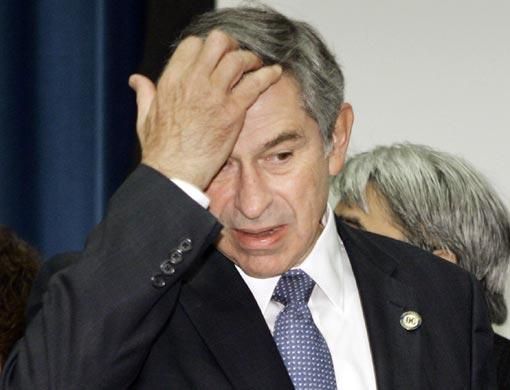Washington: Paul Wolfowitz resigned as president of the World Bank on Thursday, ending a protracted battle over his stewardship prompted by his involvement in a high-paying promotion for his companion.
"The poorest people in the world ... deserve the very best we can deliver," Wolfowitz said in a statement. "Now it is necessary to find a way to move forward."
His resignation takes effect on June 30.
Wolfowitz, a former US deputy defense secretary who was a controversial figure as a leading architect of the 2003 US-led invasion of Iraq, came to the bank in 2005 despite misgivings by European countries, which are among the bank's biggest funders.
He fought hard up to the last hour to clear his name of any charges of misconduct, saying he should not shoulder all of the blame, after a bank panel found he broke several bank rules by involving himself in the promotion of Shaha Riza, a Middle East expert at the bank.
In a face-saving agreement, the board said it accepted Wolfowitz's word that "he acted ethically and in good faith in what he believed were the best interests of the institution."
In its statement, the bank's board said it was clear that a number of people had erred in reviewing Riza's pay package.
Wolfowitz, 63, said he was pleased the board accepted his assurances.
Wolfowitz, who had fought the pressure to resign for weeks, had sought a recognition from the bank that he did not bear sole responsibility for the matter. In his own statement Thursday, Wolfowitz said he was pleased that the board "accepted my assurance that I acted ethically and in good faith in what I believed were the best interests of the institution, including protecting the rights of a valued staff member."
Now, he said, it was in the best interest of the board that its mission "be carried forward under new leadership."
The board's statement made no mention of any financial arrangements related to Wolfowitz's departure, nor did it speak to Riza's future.
As a result of the controversy, the board pledged to review the World Bank's ethics policies, noting that "the bank's systems did not prove robust to the strain under which they were placed."
US President George W. Bush reluctantly accepted the resignation and would have preferred he stay at the bank, White House spokesman Tony Fratto said. He said Bush would soon name a candidate to succeed Wolfowitz.
The presidency of the World Bank is traditionally held by an American. Bush intends to continue that tradition, a White House official said, speaking on condition of anonymity.
US Treasury Secretary Henry Paulson said he would move quickly to help Bush with identifying a successor for Wolfowitz. He said he would consult with counterparts around the world.
Bank staff were jubilant to see an end to a crisis that had engulfed the institution, which spends around $25 billion a year to fight poverty in poor countries.













